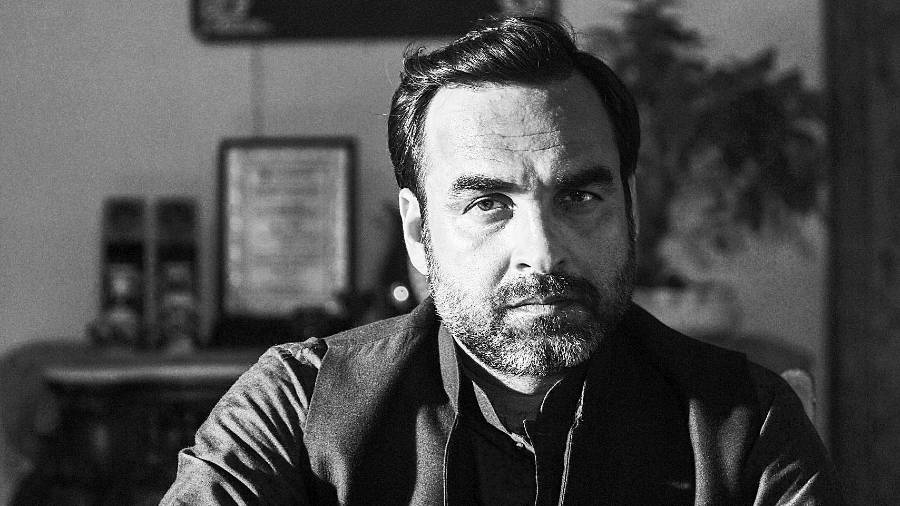Pankaj Tripathi going back to his agricultural roots and investing his fame, and some money, in an agritech app called Krishi Network is natural progression for an earthy unknown from a village in Gopalganj. Chasing a dream inspired by fellow Bihari farmer and senior, Manoj Bajpayee, Pankaj has become the busiest multimedia actor of the day, relishing and serving a laudable array of performances, working 30 days a month with barely enough time to walk his dogs or rustle up a dish in his kitchen.
Success may be measured in different ways. Pankaj chuckled that when a gangster was nabbed a short while ago, social media posts by the police announced, “The Kaleen bhaiya of such and such town has been arrested.”
“Kaleen bhaiya has grown so legendary that half the public still calls me Kaleen bhaiya,” he marvelled, astounded at the distance he’s covered since he was featured on solo hoardings of Mirzapur in 2018.
It was the first grand moment of the actor’s career.
“When I came out of Delhi airport and saw this huge poster of mine, I stood looking at it and feeling, ‘Ah, so I had to experience this pleasure too in this lifetime.’”
That poster was the starting point of stardom, which has given him a close association with the Election Commission as the state icon of Bihar and has placed him alongside the big boys of Bihar — Shatrughan Sinha, Shekhar Suman and Manoj Bajpayee. A feeling as grand as the hoarding?
“Yeh sawal mujhe bahut achchha lagta hai,” he remarked. “Once, Shatruji was speaking at a massive political rally and I was one of thousands listening to him. Then, a couple of years ago, I saw him at Maurya Hotel in Patna and said ‘namaste’, never imagining he’d have even heard of me. I was therefore wonderstruck when the same Shatruji I’d watched from 200 metres away said to me, ‘You did remarkable work in Newton. I had even tweeted about it.’ Not being social media savvy, as soon as we got out of the lift, I hunted for his tweet, found it and replied to it, one year later.
“It’s an indescribable feeling to find your name in the same bracket as the icons of Bihar.
“I got the same feeling when I met Kapil Devji and Sunil Gavaskarji after 83. When Gavaskar Sir enacted a scene of mine from 83 and asked how I did it, I was astonished that he remembered my performance in such minute detail. All I could think was, wow, do these greats of cricket actually know me? It’s a different kind of moment.”
Once upon a time, Pankaj had worked at the same Maurya Hotel where he now checks in as a VIP; also the place from where he once took Manoj’s slippers home.
“It’s true,” he confirmed. “Manoj bhaiya had forgotten his footwear and I took it saying, ‘I’ll wear it. If he comes back and asks for it, I’ll buy him a new pair.’ As a kitchen supervisor at Maurya, I’d delivered soup to his room and touched his feet.”
Eleven years later, Pankaj worked in Gangs Of Wasseypur alongside the same man.
Wasseypur and Mirzapur were also the trendsetters of low-level Hindi abuse on screens of all sizes. Was it easy for the son of a Brahmin priest and farmer to spew abuse?
“Not at all,” he replied. “I didn’t give a single gaali in Wasseypur, not one. And all through Mirzapur, I have abused only four times. That too, only because the character and the landscape justified it. I rationalise that when a feeling can be conveyed with only four abuses, why give 10? Gaaliyon mein bhi economy hona chahiye. I abuse very selectively, never to create a sensation or get attention.”
Selectivity will also reign when he reduces his workload from next year before boredom sets in. “When the hunger is great, there’s overeating,” he said. “Let’s just say my phase of overeating is over.”
To reach a position where you can say “No” is the next level of success.
Bharathi S. Pradhan is a senior journalist and author











